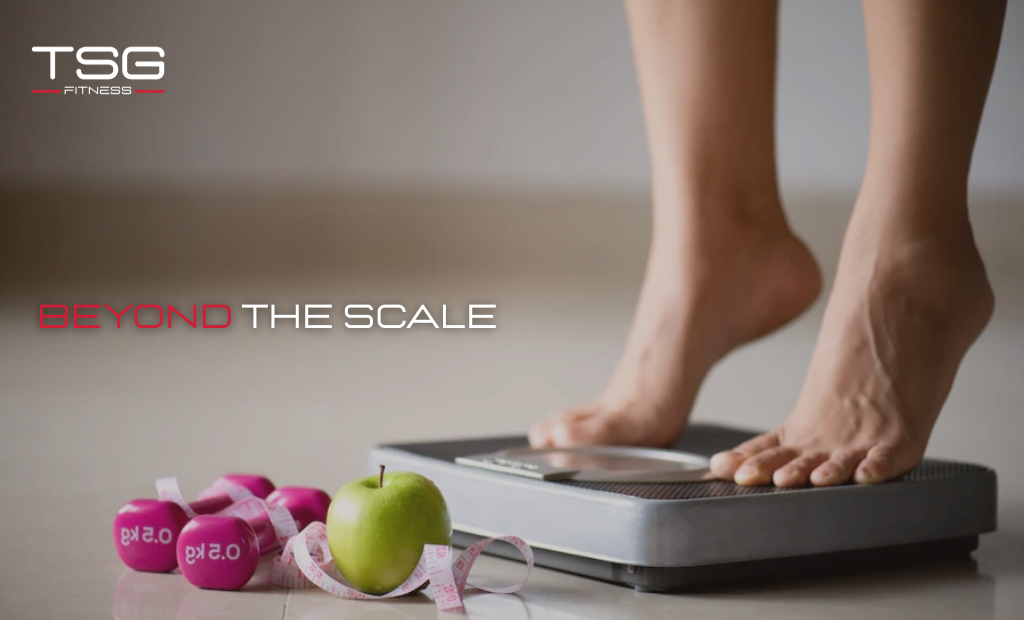
Nutrition Tips for Breastfeeding Moms Who Work Out
Balancing motherhood, breastfeeding, and an active fitness routine presents unique nutritional challenges that require strategic planning and professional guidance. At TSG Fitness, we understand that nursing mothers who choose to maintain their exercise routines need specialized nutrition support to sustain energy levels, maintain milk production, and support recovery, all while caring for their growing baby.
The Science Behind Breastfeeding and Exercise Nutrition
Lactation is one of the most metabolically demanding periods in a woman’s life, requiring an additional 500-700 calories per day above pre-pregnancy needs. When you add regular exercise to the equation, your nutritional requirements increase substantially, creating a complex interplay between energy intake, milk production, and physical performance.
Research demonstrates that moderate exercise doesn’t negatively impact milk quantity or quality, but the combination of breastfeeding and regular physical activity significantly elevates your body’s need for specific nutrients, calories, and hydration. Understanding these requirements is essential for maintaining both your health and your baby’s optimal nutrition.
The key lies in strategic nutrient timing, adequate caloric intake, and smart food choices that support both lactation and exercise recovery without compromising either function.
Caloric Requirements for Active Nursing Mothers
Base Caloric Needs
A breastfeeding mother requires approximately 300-500 additional calories per day compared to pre-pregnancy needs. However, active mothers need even more:
Sedentary nursing mothers: +500 calories above pre-pregnancy baseline
Lightly active (2-3 workouts/week): +650-750 calories above baseline
Moderately active (4-5 workouts/week): +750-900 calories above baseline
Highly active (6-7 workouts/week): +900-1,100 calories above baseline
These numbers serve as starting points; individual needs vary based on body weight, metabolism, workout intensity, milk production volume, and baby’s feeding patterns. At TSG Fitness, our registered dietitians use comprehensive assessments, including RMR testing, to determine precise caloric targets for nursing athletes.
Quality Over Quantity
While increased calories are essential, the source matters tremendously. Empty calories from processed foods won’t provide the micronutrients needed for milk production or exercise recovery. Focus on nutrient-dense options that deliver maximum nutritional value per calorie consumed.
Strategic Macronutrient Distribution
Protein: The Recovery Foundation
Active nursing mothers require significantly higher protein intake than sedentary counterparts:
Minimum protein needs: 1.8-2.2g per kg body weight
High-activity needs: 2.0-2.5g per kg body weight
This translates to approximately 25-30% of total daily calories from protein. High-quality sources include:
- Lean meats, poultry, and fish (aim for 2-3 servings daily)
- Eggs and dairy products (excellent for post-workout recovery)
- Legumes, nuts, and seeds (provide additional fiber and healthy fats)
- Plant-based protein powders (convenient for busy schedules)
Carbohydrates: Fueling Dual Demands
Carbohydrates fuel both exercise performance and lactose production in breast milk. Active nursing mothers should consume:
Daily carbohydrate intake: 6-8g per kg body weight (45-50% of total calories)
Emphasize complex carbohydrates that provide sustained energy:
- Whole grains (oats, quinoa, brown rice)
- Starchy vegetables (sweet potatoes, squash)
- Fruits (particularly berries and bananas for quick energy)
- Legumes (dual source of carbs and protein)
Healthy Fats: Hormonal Support
Adequate fat intake supports hormone production crucial for both lactation and recovery:
Daily fat intake: 1.0-1.4g per kg body weight (25-30% of total calories)
Focus on anti-inflammatory sources:
- Avocados and olive oil
- Nuts, seeds, and nut butters
- Fatty fish (salmon, sardines, mackerel)
- Coconut oil for quick energy
Critical Micronutrients for Active Nursing Mothers
Iron: Preventing Deficiency
Exercise increases iron needs through sweat loss and potential hemolysis, while breastfeeding continues iron demands. Target 15-18mg daily through:
- Lean red meat and poultry
- Fish and shellfish
- Fortified cereals and grains
- Spinach and other dark leafy greens
- Pair with vitamin C sources for enhanced absorption
Calcium: Bone Health Protection
Breastfeeding can temporarily decrease maternal bone density. Active mothers need 1,300mg daily:
- Dairy products (milk, yogurt, cheese)
- Fortified plant milks
- Canned fish with bones (sardines, salmon)
- Dark leafy greens and broccoli
Vitamin D: Immune and Bone Support
Many nursing mothers are vitamin D deficient. Aim for 15-20 IU daily through:
- Fatty fish and egg yolks
- Fortified dairy and plant milks
- Safe sun exposure
- High-quality supplements when needed
B Vitamins: Energy Production
B vitamins support energy metabolism crucial for active mothers:
- B12: 2.8 mcg daily (critical for vegetarian mothers)
- Folate: 500 mcg daily from leafy greens and fortified grains
- B6: 2.0 mg daily from protein sources and potatoes
Hydration Strategies for Active Nursing Mothers
Proper hydration becomes even more critical when combining breastfeeding with regular exercise. Dehydration can quickly impact both milk production and exercise performance.
Daily Fluid Requirements
Base hydration: 3-4 liters per day
Additional for exercise: 500-750ml per hour of activity
Hot climate additions: Extra 500-1,000ml daily
Optimal Hydration Timeline
Upon waking: 500ml water to rehydrate after a night fast
Pre-workout: 400-500ml water 2 hours before exercise
During workout: 150-250ml every 15-20 minutes
Post-workout: 150% of fluid losses (weigh before/after exercise)
Throughout day: Consistent sipping, monitoring urine color
Smart Beverage Choices
- Water as primary fluid source
- Coconut water for natural electrolyte replacement
- Diluted fruit juices for quick energy during long workouts
- Herbal teas (avoid excessive caffeine)
- Electrolyte drinks for intense or prolonged exercise
Pre and Post-Workout Nutrition Timing
Pre-Workout Fueling
2-3 hours before exercise:
- Balanced meal with complex carbs, lean protein, minimal fat
- Example: Oatmeal with banana, nuts, and Greek yogurt
30-60 minutes before exercise:
- Light, easily digestible carbohydrates
- Example: Banana with small amount of nut butter
- Avoid high-fat or high-fiber foods that may cause discomfort
Post-Workout Recovery
Immediately post-exercise (within 30 minutes):
- Combination of carbohydrates and protein (3:1 or 4:1 ratio)
- Example: Chocolate milk, protein smoothie with fruit
- Focus on quickly absorbed nutrients
1-2 hours post-exercise:
- Complete meal with all macronutrients
- Example: Quinoa bowl with grilled chicken, roasted vegetables, and avocado
Addressing Common Concerns
Exercise Impact on Milk Supply
Moderate to vigorous exercise doesn’t negatively affect milk production when caloric intake is adequate. However, intense exercise combined with insufficient calories can temporarily reduce supply. Monitor these indicators:
- Baby’s weight gain and diaper output
- Your energy levels and mood
- Breast fullness and milk expression ease
Lactic Acid in Breast Milk
High-intensity exercise can temporarily increase lactic acid levels in breast milk, potentially affecting taste. To minimize this:
- Feed baby or pump before intense workouts
- Allow 30-60 minutes post-exercise before nursing
- Express a small amount of milk post-workout if concerned about taste
Managing Exercise Around Feeding Schedules
Early morning workouts: Feed baby upon waking, exercise, then feed again
Midday sessions: Time workouts between regular feeding sessions
Evening exercise: Ensure adequate post-workout nutrition for nighttime milk production
Sample Daily Nutrition Plan
5:30 AM – Pre-Morning Workout
- 1 banana with 1 tablespoon almond butter
- 250ml water
7:00 AM – Post-Workout Recovery
- Protein smoothie: 25g whey protein, 1 cup berries, 1 cup milk, spinach
- 500ml water
9:00 AM – Breakfast
- 3-egg veggie omelet with cheese
- 2 slices whole grain toast with avocado
- 1 cup Greek yogurt with granola
12:00 PM – Lunch
- Quinoa salad with grilled salmon, mixed vegetables, olive oil dressing
- 1 medium apple
- 400ml water
3:00 PM – Snack
- Trail mix with nuts, seeds, and dried fruit
- Herbal tea
6:00 PM – Dinner
- Lean beef stir-fry with brown rice
- Steamed broccoli and carrots
- Side salad with olive oil vinaigrette
8:30 PM – Evening Snack
- Greek yogurt with honey and berries
- Chamomile tea
Daily totals approximate: 2,800 calories, 140g protein, 350g carbohydrates, 110g fat
Smart Supplementation for Active Nursing Mothers
While whole foods should form the foundation of your nutrition plan, certain supplements can help bridge nutritional gaps:
Essential Supplements
- Prenatal vitamin: Continue throughout breastfeeding period
- Omega-3 fatty acids: 1,000-2,000mg EPA+DHA daily
- Vitamin D3: 2,000-4,000 IU daily (test levels first)
- Probiotics: Support digestive and immune health
Exercise-Specific Additions
- Magnesium: 300-400mg daily for muscle function and sleep
- Iron: Only if deficient (test levels first)
- Protein powder: Convenient post-workout recovery option
Avoid During Breastfeeding
- High-stimulant pre-workouts
- Weight loss supplements
- Excessive caffeine (limit to 1-2 cups coffee daily)
- Unregulated herbal supplements
Frequently Asked Questions
How many calories should I add for both breastfeeding and exercise?
Start with 500 calories above pre-pregnancy needs for breastfeeding, then add 200-400 calories for exercise depending on intensity and duration. Monitor your energy, milk supply, and body weight to fine-tune intake.
Is it safe to lose weight while breastfeeding and exercising?
Yes, but aim for gradual weight loss of 1-2 pounds per month after the first month postpartum. Rapid weight loss can affect milk supply. Focus on body composition changes rather than just scale weight.
What’s the best time to exercise around breastfeeding?
Many mothers prefer exercising immediately after nursing or pumping to avoid breast discomfort. However, timing is individual find what works for your schedule and comfort level.
Should I drink sports drinks during workouts while breastfeeding?
For workouts longer than 60 minutes or in hot conditions, sports drinks can help maintain electrolyte balance. Choose options with minimal artificial additives and moderate sugar content.
How do I know if my nutrition is adequate for both exercise and breastfeeding?
Monitor your energy levels, milk supply (baby’s weight gain and satisfaction), exercise performance, and recovery. Fatigue, decreased milk supply, or poor workout performance may indicate inadequate nutrition.
Can I follow a specific diet plan while breastfeeding and exercising?
Avoid restrictive diets that eliminate entire food groups. Focus on balanced, nutrient-dense eating patterns that provide adequate calories and nutrients for both lactation and exercise recovery.
How much protein powder is safe while breastfeeding?
High-quality protein powders are generally safe in moderation (1-2 servings daily). Choose products without artificial stimulants and excessive additives. Whole food protein sources should remain primary.
What if I don’t have time for proper meal planning?
Prepare simple, nutrient-dense options: overnight oats, pre-cut vegetables with hummus, nuts and fruit, hard-boiled eggs, and protein smoothies. Batch cooking on weekends can save time during busy weekdays.
Successfully balancing breastfeeding, exercise, and optimal nutrition requires strategic planning, adequate calories, and smart food choices. The investment in proper nutrition pays dividends in sustained energy, maintained milk supply, improved exercise performance, and faster recovery. Remember that your needs are unique what works for other mothers may require adjustment for your individual circumstances.
At TSG Fitness, our registered dietitians specialize in creating personalized nutrition plans for active nursing mothers, incorporating comprehensive assessments, ongoing monitoring, and practical strategies that fit your lifestyle. Don’t let the demands of new motherhood derail your fitness goals with proper nutrition support, you can thrive in both roles.
Ready to optimize your nutrition for breastfeeding and exercise success? Contact TSG Fitness today to schedule a comprehensive nutrition consultation tailored specifically for active nursing mothers. Your health, your baby’s nutrition, and your fitness goals can all be achieved with the right nutritional strategy.



